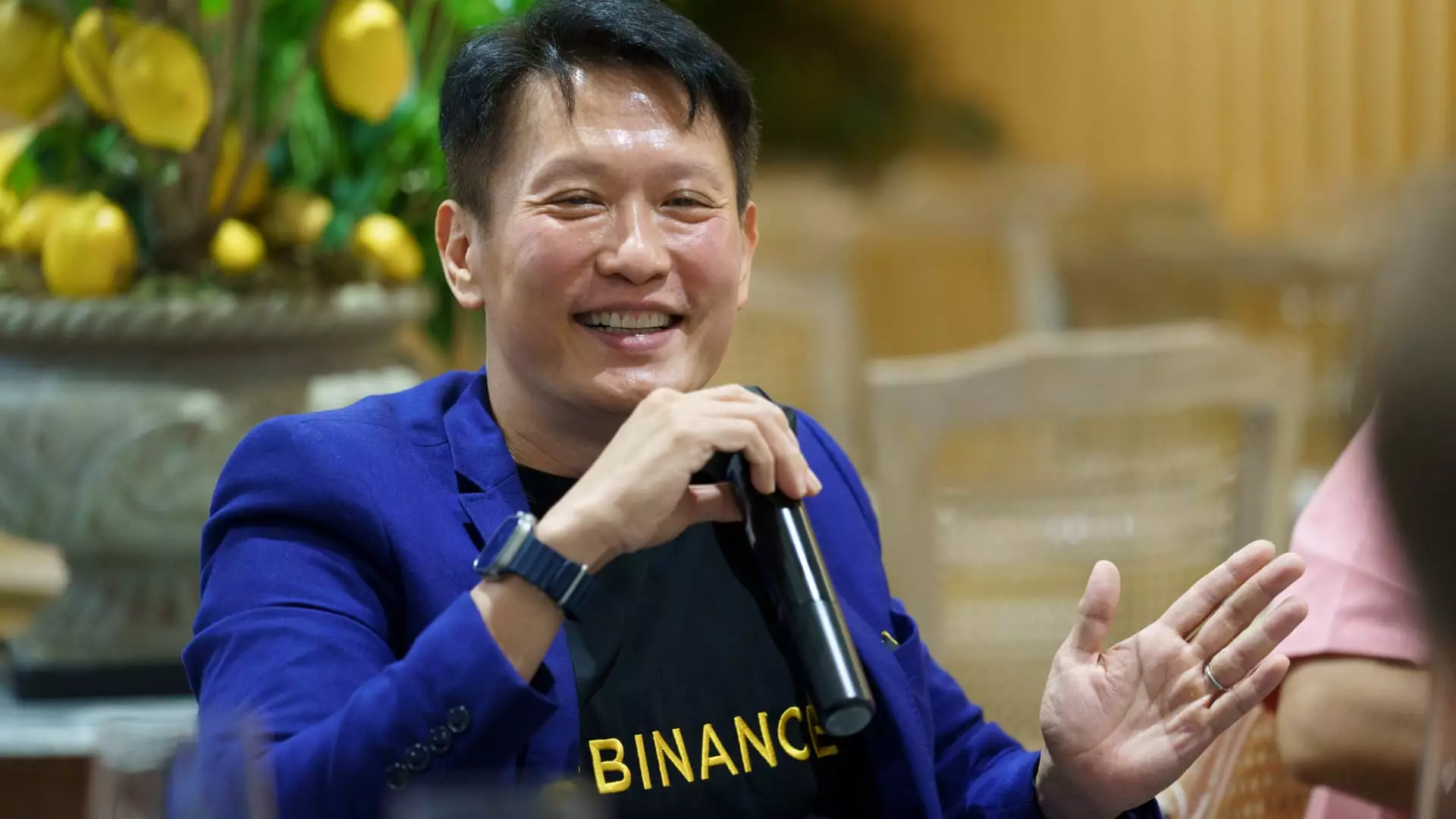The cryptocurrency landscape has undergone a seismic shift with the political reset initiated by the Trump administration. Richard Teng, the recently appointed CEO of Binance, describes this transformation as “fantastic,” suggesting that the environment for crypto has significantly improved. In merely 16 months, Binance has transitioned from being a regulatory outcast to a potential powerhouse within Washington, D.C. The firm, once synonymous with defiance against the regulatory framework, was enveloped in controversy when it faced a staggering $4.3 billion settlement. This amount is indicative of previous regulatory scrutiny and marketplace challenges, particularly under Biden, which many insiders dubbed “Operation Choke Point 2.0.” The implications of this political evolution bring both excitement and concern, highlighting the complex interplay between governance and digital currencies.
From Pariah to Partner
Teng’s statement highlights a remarkable turnaround for Binance, which is now exploring potential financial ties with the Trump family. This change hints at the lucrative opportunities emerging for crypto exchanges under a friendlier administration. No longer a symbol of regulatory backlashes, the company is engaging in conversations that could bring it closer to prominent political figures. The talks of a financial stake from a Trump-related entity underscore a potential reintegration into mainstream economic systems—an alarming yet fascinating prospect for a company that once operated under the shadow of regulatory penalties. This metamorphosis symbolizes the unshackling of crypto exchanges from prior existential threats.
Regulatory Compliance: A Double-Edged Sword
Teng’s remarks acknowledge Binance’s problematic past; a history littered with regulatory violations and a lack of sufficient compliance investments. Here, an essential question arises: Is the current regulatory landscape genuinely favorable, or just a facade masking inherent issues? The SEC’s actions continue to loom large over Binance’s future, reflecting ongoing tensions between digital asset firms and traditional regulators. Even as Teng touts a newfound compliance framework and increased staffing—1,300 professionals dedicated to ensuring industry standards—the essence of Binance’s ability to adapt remains to be seen. Will the compliance measures bridge the trust gap between crypto firms and regulatory bodies, or will Binance find itself entangled in more legal complexities?
Global Expansion or Overreach?
Teng proudly notes the rapid growth of Binance’s user base, boasting an increase from 170 million to 265 million users in just one year. However, such expansion comes with its own set of challenges. Navigating diverse regulatory environments while attempting to maintain a uniform brand identity can be daunting. The current global political climate offers varied responses, from Japan to the United Arab Emirates, all of which provide different levels of comfort toward cryptocurrency. It’s paramount for Binance to not merely expand but to establish a sustainable model that respects local regulations and corporate governance principles. However, as history has demonstrated, unchecked expansion could lead to pitfalls akin to those that plagued the firm in the past.
The Innovation Dilemma
The excitement about cryptocurrency’s potential often conceals the inherent challenges firms like Binance face. Teng mentions utilizing artificial intelligence across various platforms, such as customer service and compliance monitoring, as a pathway to efficiency. This is commendable; however, the reliance on technology raises questions about data security and user privacy. It is imperative for Binance to critique its own advancements and vet them against potential risks. In an industry notorious for its high-profile security breaches, merely improving technology isn’t sufficient. The crux of success in the crypto sector lies equally in robust security measures as well as innovative solutions.
The Shadowy Side of Global Operations
Even as the firm gains political favor, controversies arise in regions where compliance isn’t just a procedural formality. The detainment of Binance’s executives in Nigeria illustrates ongoing tensions that can arise when corporate practices collide with governmental expectations. The treatment of these detained executives would make any global firm reevaluate its compliance strategies. For Teng, this must be a wake-up call; as Binance expands internationally, it must prioritize creating a symbiotic relationship with various governments—acknowledging that a “pro-crypto” stance from authorities does not guarantee a smooth operational journey.
Market Position and Competitive Landscape
Despite Binance’s marginal setbacks, their hold on over 40% of the global market share suggests resilience; however, complacency is not an option in the fast-evolving crypto space. The emergence of Coinbase, along with ETF momentum, presents distinct challenges that could potentially erode Binance’s dominance. The larger industry ecosystem is continually evolving, and user behaviors shift as new options make their way into their investment portfolios. This evolving competitive landscape necessitates strategic innovation and adaptation rather than resting on existing laurels.
The Imperfect Road Ahead
The road to cryptocurrency’s mainstream acceptance remains fraught with uncertainties and challenges. While Teng focuses on operational excellence, the multiple concerns surrounding security, compliance, and political dynamics reflect an industry still searching for its footing. Ultimately, Binance’s ability to navigate these complexities will define not only its fate but also the broader perceptions of cryptocurrencies in global markets. The optimism surrounding cryptocurrencies sparked by a more favorable regulatory climate is essential, yet it must be balanced against the inherent risks that accompany rapid change. As this dynamic unfolds, the future of Binance—and the entire crypto ecosystem—will certainly be a portrait of contradictions, triumphs, and missteps.

